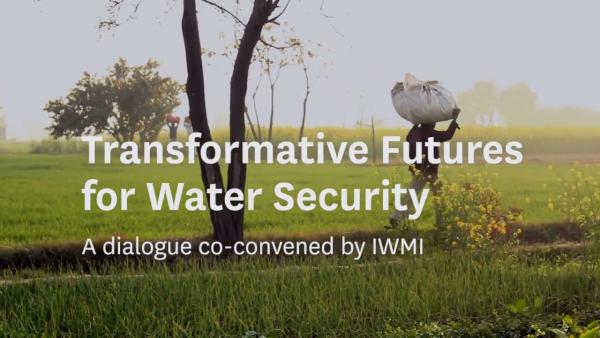IWMI leads Transformative Future for Water Security Initiative
Outcomes of global dialogue on science-based action for water security
6 Apr 2023 by The Water Diplomat

In the run up to the UN 2023 Water Conference, The International Water Management Institute (IWMI) coordinated a year-long dialogue across eight regions of the world focused on transformative action to strengthen water security. These regional dialogues culminated in a global conference in the month preceding the global conference, at which eight core actions were identified and validated by the stakeholders involved in the dialogue. The initiative, known as the Transformative Futures for Water Security Initiative (TFWS), sought to build partnerships and coalitions among the policy, business, development, practitioner, and science communities around the scientific base for action on water security.
Crafted against the background of observed water insecurity in many regions of the worlds and an urgent need to accelerate action around the implementation of Sustainable Development Goal 6 (SDG 6) on water and sanitation, the central aim is to better align the water agenda with scientific progress and evidence. Behind this is the aim to build mission-oriented partnerships and coalitions round action on the eight priority areas to improve water security.
The first priority area identified was to build farmers’ resilience to climate change and water risks. Soaring water and energy demand for food production in a changing climate means that the past is no longer a guide to decision making, and managing risks requires applying climate smart interventions to increase water productivity and transform agriculture. With 80% of global water use currently accounted for by the agricultural sector, it is no surprise that this issue was identified as the top priority.
The second area identified through the dialogues was the need to deliver sustainable, stakeholder driven Water, Sanitation and Hygiene (WaSH) services. It is estimated that 2.2 billion people lack safely-managed drinking water1 and nearly half the world lacks access to safely managed sanitation. Population increases, leading to increased demand, especially in urban areas, is contrasted with lack of water and water services in rural areas. Here, participants emphasised the importance of the accountability of responsible institutions, linked to the availability of adequate information, and clear policies aiming at achieving universal access.
Third, increasing freshwater supply was prioritised. Per capita available renewable freshwater resources have declined worldwide by 20% and by 41% in sub-Saharan Africa, and by 32% in West Asia and North Africa over the past decade. With limits to supply being reached in many areas, a transition is needed from linear water used to circular water use, while upscaling technologies for non-conventional water and focusing efforts on reducing non-revenue water.
Fourth, there is the imminent threat of existing infrastructure being rendered redundant – so called ‘stranded assets’ – if they are not made future proof. There is a need to ensure better cooperation between built infrastructure and ecological infrastructure in the face of degradation of the headwaters of rivers, the melting of glaciers, the loss of wetlands, the trapping of silt, and declining water quality.
Following these four priorities, stakeholders also agreed on the need to overcome data and information barriers, integrate different water values and different stakeholder perspectives into a unified water vision, deliver ‘good’ water governance and transboundary cooperation, and focus on responding to future water risks and water regimes.
